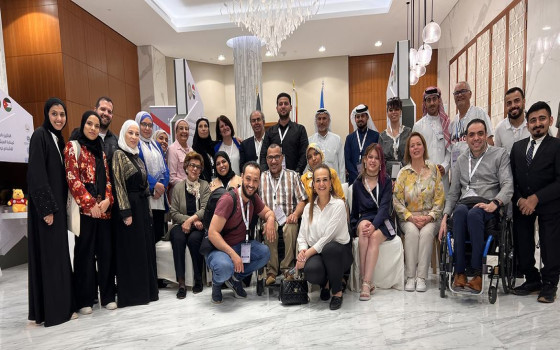
Pioneering initiatives to empower people with disabilities in the Arab world...on the sidelines of the activities of the Global Forum for Entrepreneurs and Investment

- Europe and Arabs
- Saturday , 8 June 2024 15:32 PM GMT
Manama - New York: Europe and the Arabs
In the Arab region, hope shines thanks to creative minds that know no bounds to disability, as inspiring success stories emerge from people who defied difficulties and turned challenges into opportunities.
According to what was stated in the United Nations daily news bulletin, a copy of which we received this morning
Within the activities of the Global Entrepreneurship and Investment Forum, which was recently organized by the Investment and Technology Promotion Office of UNIDO in Bahrain, United Nations News met with a number of male and female entrepreneurs with disabilities who participated in the second edition of the Independent Living Initiative for People with Disabilities.
This article is a journey into the world of creativity and innovation, where we get to know inspiring figures from various parts of the Arab world, each of whom carries a unique success story. From Egypt to Morocco, from Tunisia to Jordan to Bahrain, projects and initiatives are diverse, but they all share one goal: empowering people with disabilities and improving their lives, which opens new horizons for independence and integration into society.
Innovation and technology are empowering factors for people with disabilities
From Tunisia, we met the young woman Olfa Al-Dababi, a digital artist who refused to allow her disability to deprive her of the right to contribute to her community, especially at a time when online bullying is rampant in the world, and people are judged based on their appearance. Al-Dabbabi stressed to UN News the importance of technology and innovation in building inclusive societies.
While in a booth displaying her digital artwork, she said: “My passion for technology and innovation makes me serve others. Although I suffer from a nervous system disability, it has not disabled me, but rather inspired me to confront it and become the woman I am now. Innovation and technology are not only my passion; Rather, they are enablers of the work I do now.”
Al-Dabbabi founded a company called OLFUS that uses digital art to convey different messages, including encouragement to people facing challenges. "I want to talk about bullying because it is not a good thing. I also talk about the importance of accepting our identity and rejecting body shame as well as mental health. I was bullied as a child because of my disability, but my family was there for me," she said.
Al-Dababi now uses computer technology and artificial intelligence to produce her art and print on papers, t-shirts and mugs to share messages that help those facing challenges like her, saying that as days go by, we need more artificial intelligence.
Olfa Al-Dababi says: “The message I want to send is that every person has a dream. Believe in your dreams and work hard to achieve them despite all the difficulties and obstacles. Art is one of the things that gives a person positive energy and makes him love life.”
An application to solve the problem of parking in Bahrain
From Bahrain, we met engineer Ayoub Asad, who introduced himself as an inventor, international trainer, and content creator. Ayoub invented a system to alleviate the suffering faced by people with disabilities regarding parking. He says it's difficult for people with disabilities to get out of their cars to remove barriers when entering parking lots.
He added: “I created an invention in the form of a mobile phone application that enables a disabled person to know the available parking spaces in hospitals and public places, and thus he can reserve the parking space before he leaves his home. When the disabled person reaches the parking lot, he is identified by artificial intelligence and then the parking space is opened in a smart way.” When it comes out of the situation it closes where someone else can use it.”
Ayoub says that he participated in several international and global competitions and achieved several achievements from Bahrain and Portugal, and also participated in the International Invention Exhibition in Kuwait.
Ayoub sent a message to people with disabilities and said: “My message to people with disabilities is that disability should not prevent us, but rather it must be a basic motivation for us to achieve achievements not only in our field, but we can achieve achievements for our society and the world and help the world to be a better place for everyone.” .
Graphic design is a means of self-reliance
Salma is a graphic designer from Morocco. She holds a diploma in graphic design. She specializes in printing on clothes, cups, and thermal printing in general, and is also talented in drawing.
She says that she deals with companies in Morocco that always request the design of logos and prints on T-shirts. She says she markets her products online via sites such as Facebook and Instagram.
Salma has a message: “I tell people with disabilities not to stop and to follow their dreams because disability will not constitute an obstacle. Disability represented a great motivation and motivator for me, and without disability I would not have reached where I am now. I am now independent and do not depend on anyone and no one can He orders me to do this or that.”
“Go Theeb”: Specialized bicycles for people with disabilities
Khaled Abdel Karim Al Omar, a young Jordanian from Jordan, was inspired by his disability to establish the “Go Theeb” project, a company specialized in manufacturing bicycles for people with special needs and the elderly.
He explained to UN News by saying: “As a person with a disability, I wanted to have a bike that would serve my needs or be in a way that was appropriate for me. I started this project in 2020 - that is, during the period of the Corona pandemic. There was a great demand for bicycles and electric bikes. I started The project is just a hobby, and now I have an existing project to manufacture bicycles and bicycles for people with disabilities and the elderly in Amman.”
Al-Omar says that the entire bicycle industry takes place in Jordan. Bicycles are manufactured according to a person’s need for them and are marketed through websites to a number of regions, including Jordan and the Arabian Gulf.
Khaled Al-Omar adds: “I feel that I made a difference as an Arab person who was distinguished by something that does not exist in the Arab region, and that I was the first person in the Arab world to make bicycles for people who need them, since some of these bicycles are more therapeutic than recreational.”
A digital board to facilitate studying for the blind
From Tunisia, we met Rania Makni, an engineer in the field of medical technology. Her project is a digital tablet that facilitates studying for blind people, and translates digital texts into Braille that enables blind people to read.
She explains her invention by saying: “We know that printing the size of a regular sheet of paper is equivalent to three sheets of paper when we use the Braille method, and therefore it is a lot of printing, expensive and not available anywhere. Therefore, this plate facilitates life for the blind person and makes him live independently and continue his studies comfortably without the need for people’s help.” others."
Rania Makni says that she was inspired by the idea of a blind friend of hers who was studying law in Tunisia and used two methods to study. “They either print using Braille - which we said is expensive and not available - or they record the lesson using a voice recorder. When they record, the noise makes the sound unclear. It is known that studying law involves studying a lot of books, so the idea came to me to make something that is easier.” She has to study and it makes her comfortable. I discovered through research that there are 225,000 blind students in Tunisia, and they sacrifice and make great efforts to complete their studies.”
A medical platform to create an inclusive society
Tarek Salem from Egypt is the co-founder and CEO of Axis Life. He explained to UN News the reason that prompted him to establish his company, saying: “I have quadriplegia and cannot move my legs or fingers. I faced a great challenge in relying on myself, and this is the reason that prompted me to create Access Life.”
He explained that the company is a multi-platform with three stages: “The first stage is in which we include all medical tools under one platform, and we also prepare video clips to educate people with disabilities because they may not know that this tool exists or how it can help them become self-reliant.” As for the second stage, we conduct a survey to find out the tools that people with disabilities need most, with the aim of manufacturing them for them. As for the third stage, it is the most important, as we create an inclusive society for people with disabilities.”
Participatory design to facilitate communication and communication
Abdullah Shabana is from the Kingdom of Saudi Arabia, and his idea is participatory design initiated by the Massachusetts Institute of Technology in the United States of America and the Saudi Authority for Intellectual Property.
Shabana told UN News, “Participatory design is simply an initiative that brings together designers and people with disabilities, where they come together to accomplish tasks, starting from the idea of research to the idea of production, and through participatory design, more than one project is produced.”
He added: "The project that we are presenting today is an audio application that serves people who have difficulty communicating. The application allows these people to communicate with their families. The application enables people with disabilities to communicate in the language of the people of the country."
An integration platform to help parents
From the Ministry of Social Solidarity in Egypt, Nesma Youssef participated as a representative of the “Damj” initiative, which is a platform that helps parents of children with special needs from the age of 4 to 18 years so that they can communicate with specialists in the field of special education and rehabilitation through the platform.
Nesma Youssef explains the idea of the platform by saying: “The guardian registers on the platform, determines the service he needs, and submits the request. The Damj platform provides all the resources that the guardian needs in the stages of rehabilitation for his or her child. He is also able to follow up on the treatment plans and how he is able to implement them with his son.” At home or school, in addition, we help the parent to help his son or daughter integrate at school or outside of school.”
The first project to care for people with disabilities in Palestine
Nadia Musleh is the president of the Nahda Women's Association in Ramallah, which was founded in 1925. Mrs. Musleh says that the association established the first project to care for people with disabilities in Palestine in 1972, providing them with education and care.
She added: "We have a rehabilitation center that serves between 45 and 60 people with disabilities daily. We provide them with daily plans and programs. The center teaches people with disabilities to make different hand tools, as well as coloring and drawing. We came here to highlight what we have in Palestine."
Integration into the tourism sector
Samer Sfeir, from Lebanon, is a social entrepreneur and founder of ProAbled, a company specialized in providing training and consulting to companies, universities, the public sector, and everything related to the integration of people with disabilities.
Samer says that one of the sectors that his company focuses on is hotels. He explains this by saying: “There is a major important opportunity for the Arab countries. There are currently 27 million tourists in the world who are people with disabilities, so why can’t the Arab region be a meeting place for them?”
He added that his company provides consultations to hotels, companies and ministries "so that we can attract people with disabilities and fully secure their rights as customers, employees and members of society."
He adds: “We provide training and consultations in an innovative way to employees on how to deal with people with disabilities and how to equip buildings in an inclusive and accessible manner.”
He explained that his company has so far trained 150 companies, and provided consultations to small, medium and large companies, in addition to cooperating with three ministries and five universities in the Arab region.


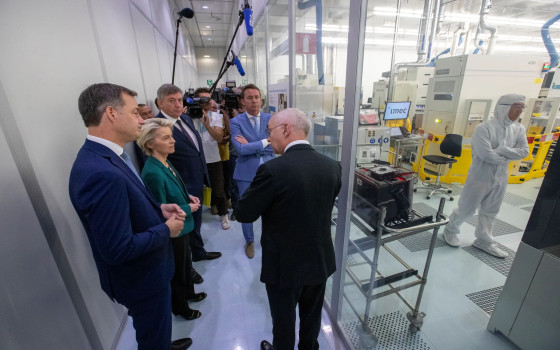
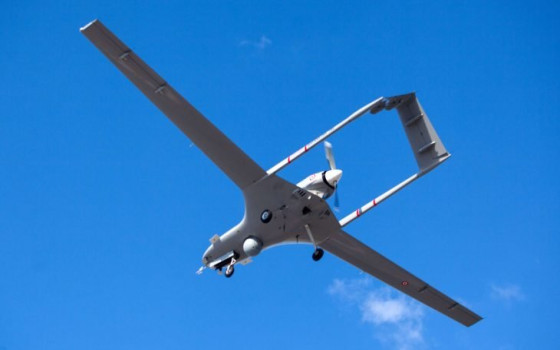

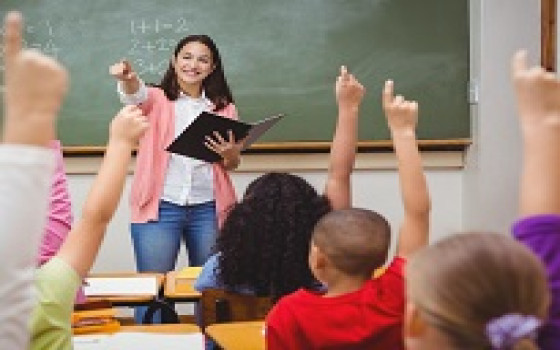

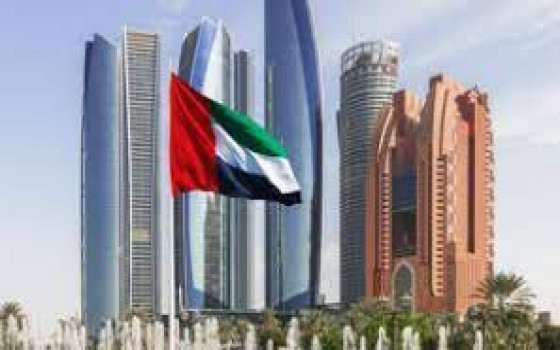
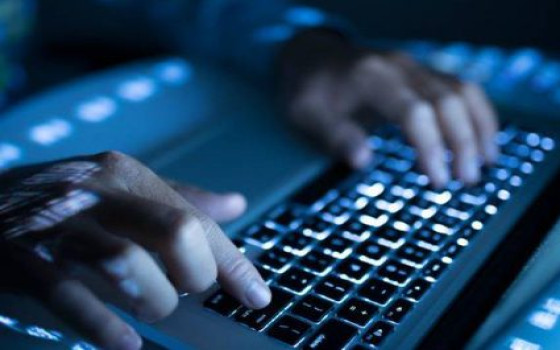
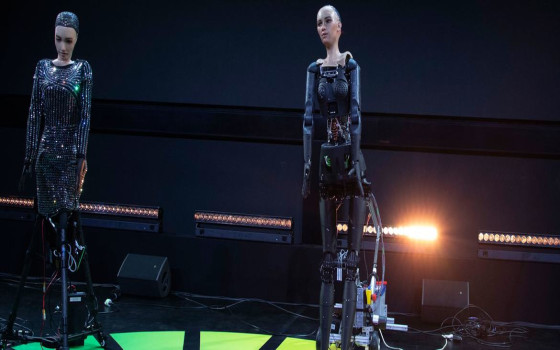
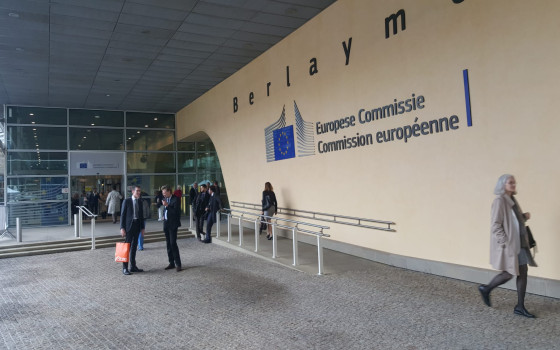
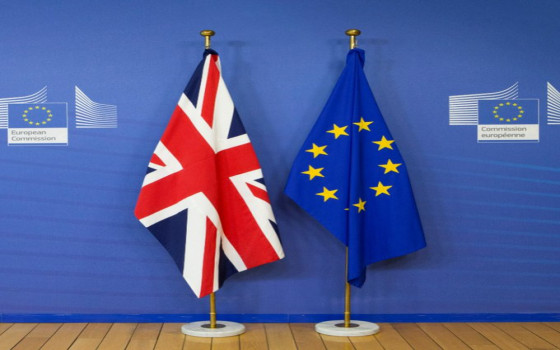
No Comments Found